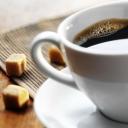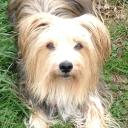Yahoo Clever wird am 4. Mai 2021 (Eastern Time, Zeitzone US-Ostküste) eingestellt. Ab dem 20. April 2021 (Eastern Time) ist die Website von Yahoo Clever nur noch im reinen Lesemodus verfügbar. Andere Yahoo Produkte oder Dienste oder Ihr Yahoo Account sind von diesen Änderungen nicht betroffen. Auf dieser Hilfeseite finden Sie weitere Informationen zur Einstellung von Yahoo Clever und dazu, wie Sie Ihre Daten herunterladen.
Welche englischen Wörter kennt ihr, die auf Deutsch genauso lauten und dieselbe Bedeutung haben?
Hausaufgabe.
11 Antworten
- vor 1 JahrzehntBeste Antwort
Die einfachsten Wörter sind z.B.: Fish = Fisch,
Mouse = Maus,
House = Haus
Pullover = Pullover
- Anonymvor 1 Jahrzehnt
@ Karl : Handy ist deutsch und nicht englisch oO
- Anonymvor 1 Jahrzehnt
Kindergarten
Computer
Server
Wlan
lan
- Wie finden Sie die Antworten? Melden Sie sich an, um über die Antwort abzustimmen.
- Secular HumanistLv 7vor 1 Jahrzehnt
verklemmt emotionell verklemmt
Arm
Hand
Finger
Land
Butter
Maus - Mouse
Keller - cellar
- LennyLv 6vor 1 Jahrzehnt
Umlaut
Kindergarten
Zeitgeist
kaputt
Wunderkind
verboten
gummy bear (Gummibär - lediglich die Schreibweise wurde angepasst)
Gesundheit (als Ausruf)
Schadenfreude
gemütlich
Gemütlichkeit
Heiligenschein
Zeppelin
über (oder uber) als Präfix im Sinne von "Super-, Mega-" z.B. "uber-awesome" für "megacool"
Kraut
Foosball (TischfuÃball - Schreibeise angepasst)
Dachshund
Poltrergeist
Karabiner
Wurst
Patzer
Katzenjammer
Doppelgänger (hört sich sehr lustig an wenn es ein Amerikaner sagt - und die meisten haben keine Ahnung dass es ein deutsches Wort ist)
Schmutz
Dreck
Fest
Bratwurst
to abseil = sich abseilen
Lager (Bier)
Rucksack
Plattenbau
Frankfurter (Wurst)
wunderbar
Kohlrabi
Delikatessen (oft als Deli abgekürzt)
Ersatz
Kitsch
Leitfaden
alle Nomen werden im Englischen natürlich klein geschrieben
- wordless_chamberLv 4vor 1 Jahrzehnt
Handy ist kein englisches Wort, das Ding heiÃt mobile phone oder cell(ular) phone.... Ansonsten gibt es der langen Liste nichts hinzuzufügen, auÃer vielleicht den Begriffen, die sich nach WW2 in die englische Sprache eingeschlichen haben, z.B. Blitzkrieg
- vor 1 Jahrzehnt
Hmm....ich kenne wohl zwei deutsche Wörter, die ins englische genauso übernommen wurden, so ausgesprochen werden, udn auch die gleiche Bedeutung haben.
Gesundheit - wenn jemand niest
Kindergarten - für...ja...Kindergarten...
Diese Worte sind genauso im englischen Sprachgebrauch
- al_ninjoLv 4vor 1 Jahrzehnt
Hier die ganze Liste:
http://en.wikipedia.org/wiki/List_of_German_expres...
http://de.wikipedia.org/wiki/Liste_deutscher_W%C3%...
Food and drink
* Berliner Weisse*, sour beer infused with fruit syrup
* Biergarten, open-air drinking establishment
* Bratwurst (sometimes abbv. brat), type of sausage
* Bundt cake, a ring cake (from bundkuchen, literally "gathering cake")
* Delikatessen, speciality food retailer, fine foods
* Gummi bear, also found with the Anglicized spelling gummy bear, German spelling: Gummibär
* Hamburger, sandwich with a meat patty and garnishments
* Hasenpfeffer, type of rabbit (or hare) stew
* Hefeweizen, unfiltered wheat beer (containing yeast)
* Frankfurter, pork sausage
* Kipfel, also kipferl, a horn-shaped type of pastry
* Kirschwasser, spirit drink made from cherries
* Kohlrabi, type of cabbage
* Kraut, cabbage; sometimes used as a derisive term for Germans
* Lager, beer made with bottom-fermenting yeast and stored for some time before serving
* Leberwurst, pork liver sausage
* MaÃ*, a unit of volume used for measuring beer
* Muesli, breakfast cereal (Swiss German diminutive of "mues"; (German spelling: Müsli), possibly related to English "mush")
* Pilsener (or Pils, Pilsner), pale lager beer
* Pretzel (evolved from Bretzel), flour and yeast based pastry
* Pumpernickel, type of sourdough rye bread, strongly flavoured, dense, and dark in colour
* Rollmops, rolled, pickled herring fillet
* Sauerkraut, fermented cabbage
* Schnaps, distilled beverage
* Spritzer, chilled drink from white wine and soda water (from "spritzen" = to spray)
* Stein, large drinking mug, usually for beer (from "Steingut" = earthenware, referring to the material)
* Streusel
* Strudel (e. g. Apfelstrudel), a filled pastry
* Wiener, hot dog (from "Wiener Würstchen" = sausage from Vienna)
* Wiener Schnitzel, crumbed veal cutlet
* Wurst, sausage, cold cuts
* Zwieback, a "twice baked" bread; rusk, variants: German hard biscuits; Mennonite double yeast roll.
Those marked * are not generally used in an English context.
[edit] Sports and recreation
* Abseil (German spelling: sich abseilen, a reflexive verb, to rope (seil) oneself (sich) down (ab)); the term abseiling is used in the UK and commonwealth countries, "roping (down)" in various English settings, "rappelling" in the US and "snapling" by Israelis.
* Blitz, taken from Blitzkrieg (lightning war). It is a team defensive play in American or Canadian football in which the defense sends more players than the offense can block.
* Foosball, probably from the German word for table football, TischfuÃball [1]; paradoxically, foosball is called Kicker in German
* Karabiner, snaplink, a metal loop with a sprung or screwed gate, used in climbing and mountaineering; modern short form/derivation of the older word 'Karabinerhaken'; translates to 'riflehook'. The German word can also mean Carbine.
* Kutte, a type of vest made out of denim or leather and traditionally worn by bikers, metalheads and punks
* Fahrvergnügen meaning "driving pleasure"; originally, the word was introduced in a Volkswagen advertising campaign in the U.S., one tag line was: "Are we having Fahrvergnügen yet?").
* Kletterschuh, climbing shoe (mountaineering)
* Rucksack (more commonly called a backpack in U.S. English)
* Schuss, literally: shot (ski) down a slope at high speed
* Turnverein, a gymnastics club or society
* Volksmarsch / Volkssport, non-competitive fitness walking
* Volkswanderung
* Wunderbar
[edit] Other aspects of everyday life
* –bahn as a suffix, e.g. Infobahn, after Autobahn
* Blücher, a half-boot named after Prussian General Gebhard Leberecht von Blücher (1742–1819); also a hand in the British card game Napoleon.
* Dachshund, literally badger dog, a dog breed (the breed usually goes by the name of Dackel in German usage).
* Doberman Pinscher, a dog breed
* Doppelgänger, "double-goer"; also spelled in English as doppelganger; a double or look-alike. However, in English the connotation is that of a ghostly apparition of a duplicate living person.
* Dreck, literally dirt or smut, but now means trashy, awful (through Yiddish, OED s.v.)
* Dummkopf, dumm=dumb/not intelligent + Kopf=head; a stupid, ignorant person, similar to numbskull in English
* erlaubt, allowed, granted - opposite of verboten.
* Ersatz, replacement; usually implying an artificial and inferior substitute or imitation
* Fest, festival
* Flak, Flugabwehrkanone, literally: air-defence cannon, for anti-aircraft artillery or their shells, also used in flak jacket; or in the figurative sense: "drawing flak" = being heavily criticized
* Gemütlichkeit, coziness
* Gesundheit, literally: health; an exclamation used in place of "bless you!" after someone has sneezed
* Hausfrau, pejorative: frumpy, petty-bourgeois, traditional, pre-emancipation type housewife whose interests centre on the home, or who is even exclusively interested in domestic matters (colloquial, American English only), sometimes humorously used to replace "wife", but with the same mildly derisive connotation
* Kaffeeklatsch, afternoon meeting where people (most times referring to women) chitchat while drinking coffee or tea; Kaffee = coffee, Klatsch = gossip, klatschen = chitchatting
* kaput (German spelling: kaputt), out-of-order
* Kindergarten, children’s garden, day-care centre, playschool, preschool
* Kitsch, cheap, sentimental, gaudy items of popular culture
* Kraut, a derogatory term for a German, literally means cabbage in German
* Lebensraum, space to live
* Meister, Master, also as a suffix: –meister
* Nazi, short form for Nationalsozialist (= National Socialist)
* Neanderthal (modern German spelling: Neandertal), for German Neandertaler, which means: of, from, or pertaining to the Neandertal ("Neander Valley"), site near Düsseldorf where early Homo neanderthalensis fossils (also called Neandertaler in German) were found
* Oktoberfest, Bavarian folk festival held annually in Munich during late September and early October
* Poltergeist, mischievous, noisy ghost; cases of haunting, involving spontaneous psychokinesis
* Rottweiler, breed of dog
* Schadenfreude, delight at the misfortune of others
* ScheiÃe, an expression and euphemism meaning "shit", usually as an interjection when something goes amiss
* Schnauzer, breed of dog
* Spitz, a breed of dog
* uber, über, over; used to indicate that something or someone is of better or superior magnitude, e.g. Ãbermensch
* Ur– (German prefix), original or prototypical; e.g. Ur–feminist, Ursprache, Urtext
* verboten, prohibited, forbidden. Both in English and German, this word has authoritarian connotations.
* Volkswagen, brand of automobile
* Wanderlust, the yearning to travel
* Wiener as in "You're a Wiener", signifying a spineless, weak person. In German, the term "Würstchen" (the diminuitive form of Wurst) is used in its place
* Wunderkind, wonder child, a child prodigy
* Zeitgeist, spirit of the time
* Zeppelin, type of rigid airship named after its inventor
[edit] German terms common in English academic context
German terms sometimes appear in English academic disciplines, e.g. history, psychology, philosophy, music, and the physical sciences; laypeople in a given field may or may not be familiar with a given German term.
[edit] Academia
* Ansatz, basic approach
* Festschrift, book prepared by colleagues to honor a scholar, often on an important birthday such as the sixtieth.
* Leitfaden, guidelines
* Methodenstreit, disagreement on methodology
* Privatdozent
* Q document
[edit] Architecture
* Bauhaus
* Biedermeier
* Jugendstil
* Plattenbau
[edit] Arts
* Gesamtkunstwerk, "the whole of a work of art", also "total work of art" or "complete artwork"
* Gestalt "The Whole is greater than the sum of the parts"
[edit] Music
* Augenmusik
* Fach, method of classifying singers, primarily opera singers, by the range, weight, and color of their voices
* Flatterzunge Playing technique for wind-instruments
* Flugelhorn (German spelling: Flügelhorn), a type of brass musical instrument
* Glockenspiel, a percussion instrument
* Heldentenor, "heroic tenor"
* Hammerklavier, "hammer-keyboard", an archaic term for piano or the name of a specific kind of piano; most commonly used in English to refer to Beethoven's Hammerklavier Sonata
* Hosenrolle
* Kapellmeister, "music director"
* Katzenjammer
* Konzertmeister
* Leitmotif (German spelling: Leitmotiv) a musical phrase that associates with a specific person, thing, or idea
* Lied (pronounced "leet"), "song"; specifically in English, "art song"
* Lieder ohne Worte, "songs without words"
* Liederkranz, male singing club
* Liedermacher, Singer-songwriter
* Meistersinger, Master-singer
* Mensurstrich
* Minnesang, medieval love poetry
* Ohrwurm
* Schlager, "a hit" (German "schlagen", to hit or beat)
* Schuhplattler, a regional dance from Upper Bavaria and Austria
* Singspiel, German musical drama with spoken dialogue
* Sitzprobe, rehearsal of a musical stage








